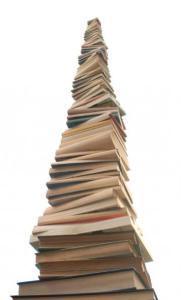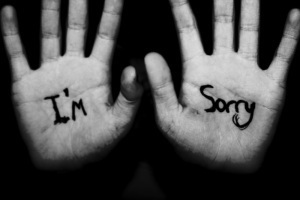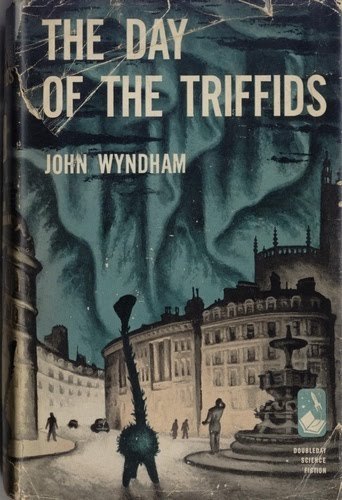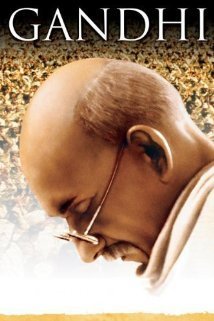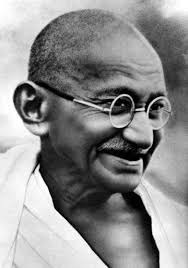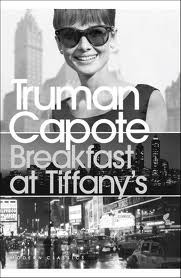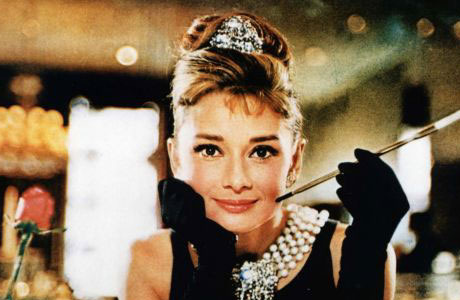Louise M.H. Miller's Blog, page 17
January 7, 2014
Resolutions, resolutions, resolutions.
It’s Resolution time. Lose weight, eat more healthily, exercise more and…..drink less, are probably on everyone’s list somewhere. Quitting smoking, finding a new job, find ‘the One’…again probably on a lot of people’s.
But in January 2013 I decided to ignore my usual resolution to lose a bit of weight &c which usually fails after one day, and decide upon something a bit more different and a bit more proactive and hopefully one I’ll keep………and the result was: My New Year’s Resolutions for future years will be ‘To Learn Something New’.
This doesn’t have to be a skill every year, it could just be to learn about something I didn’t know before, for example my history studies never really included Chinese history nor do I know anything really about the Crimean War, so one year could simply be learning about these – or other – periods of history.
And for 2013 it was to learn to knit. I’m half way through a scarf right now, and not done as much knitting as I would have liked, but I didn’t really find it that easy to pick up, I was all fingers and thumbs with it. So after learning the ‘theory’ behind it and getting nowhere but frustrated, I put it to one side for several months, before picking it up again and I was able to knit! The break to ‘calm down’ with it helped me. So I wouldn’t say I’ll be knitting jumpers for next year, but it’s a skill I’ve learnt. So I’ve stuck to it: to learn something new!!
……so what for 2014…… to learn how to make bread. And not just a simple white loaf (although that’s what I’ll be starting with), but allsorts really.
My writing resolutions are kept separate from ‘New Year Resolutions’. Next year, I’ll want to publish my second novel and begin working on a third. Plus I’ll want to improve my online presence…and of course read more.
Filed under: Uncategorized Tagged: bread, knitting, new skills, new year, resolutions, writing


December 20, 2013
Evaluation time approaches!
It’s almost time for evaluation. And with Christmas approaching and New Year following hot on its heels it’s generally almost the time of year to evaluate the year gone by. So what has 2013 brought for me? A new job. A new house. My first novel was published and a second one written – waiting to be edited. Not so bad.
It’s also the time of year where you evaluate what more you could have done. Travelling is always high on my list, but that is very much constrained by the purse strings. I always imagine myself visiting what I class as the ‘old European cities’ like Prague and Vienna.
My job is going well and the community library is going from strength to strength and moving in the right direction. We’re almost settled in the new house, we’re waiting for the spring – and hopefully the better weather – before we crack on and decorate. And it’ll feel more like home after we’re spent Christmas here and after my partner starts his new job in January!
Writing is obviously at the top of my list. I’m pretty happy with what I’ve achieved this year, although I would have liked to have started on the gruelling editing process of my second novel, and even have an outline of a third drawn up. I am debating whether to write a non-fiction work – but that seriously will take time with the immense amount of research that I’ll need to do.
Reading wise, again I’m pretty happy. Obviously I always want to have the time to read more. For next year I think that I’ll read a bit more non-fiction works – generally history. Like this year, I’ll record what I’ve read to look back on at the end of the year.
Establishing and maintaining an online presence is the thing that I’ve let slide. I’m sure that other authors feel the same. We’re more interested in the writing side – and we are writers so who can blame us? Either that or I’m sure they’ll be some of us who can’t draw themselves away from the social media side of it. Engaging with like-minded people is great and you can – and do – learn a lot from the experience of other people and you can – and do – get directed to other people’s blogs and websites with some cracking advice. But writer’s need to write. So finding that balance can be difficult. I’ve found it difficult this year to keep my online presence going, and it’s something that I am aware of and something that I will get sorted for next year.
Filed under: Uncategorized Tagged: 2013, christmas, evaluation, feedback, future, new year, review, self-evaluation


December 3, 2013
10 books, 100 books, 1000 books…in a year…!!!
Not so long ago on either Facebook or Twitter, an Indie author writing group I follow asked the question: how many books have you read so far this year? (Or at least words to that effect.)
And I was shocked by the answers, because in my view they were so astronomical! Let’s say in 10 months, some people proudly admitted that the number of books they’d read went into the 200 bracket! And I think one person was closer to 300. To me this seems a hell of a lot. It’s just under one a day!
And I’m not calling them liars, and I’m impressed – and green-eyed – that they managed to find enough time in their days to dedicate solely to reading. Now I don’t actually know what these peoples’ careers may be – editors, reviews, or agents – I’d get that. But I guess my point is…what books did these people read? It’s a curious question. I try not to be a book snob – but I can’t escape the fact that I sort of am. And I don’t think I can continue writing this blog without sounding a tad judgemental. But with the number read, let’s say one in two days – then I can’t really see that they’re on the length or complexity of say – War and Peace.
I guess my actual point would be, thinking about it, would be that is it the number of books read in a space of time or the quality? Are they just words on a page or did they flex their brain muscles? Sure we don’t want to be reading the likes of War and Peace all the time. But especially to avid readers should we just read the same types of things or should we stretch ourselves? Like a runner pushing himself just one more mile, or a swimmer just one more length, readers too should push themselves, right?
Of course, some of this is green-eyed envy pure and simple. This year completely separate from this group I decided to record what I’d read in 2013, not so much the number but what. And I’ve enjoyed looking back and reading through the list – very short list by comparison – and remembering what I’ve read and forgotten I’ve read. And sure, for me I was pretty pleased and proud of the number: a whopping 35 so far!
Filed under: Uncategorized Tagged: 2013, books, books read, reading, reading envy, reading groups, reading lists


November 22, 2013
More from me….
At the end of my last blog I spoke about the difficulties I may find in established a new routine. Actually it’ll be the old routine that I had before the move, I just need to get back into the swing of it. There are many pointers about the importance of establishing a writing routine for writers, and once I had it, I stuck – mostly to it. And I know that it’s equally important to re-establish that routine as soon as possible should it be lost. And I will….
I guess the main problem I have is establishing my routine while my partner/boyfriend is still at home waiting to start his jobs (security checks pending). And although he is supportive of my writing, the temptation to sit with him and watch tv or go on days out is strong. And it’s this I need to pull myself away from.
Plus with me mainly in the early stages of research, my actual time for writing does suffer. On the positive side I think would be an excellent opportunity not only to catch up on my blogging and re-establishing my online presence, but also to practice writing short stories, character inventions and newspaper style writing, to keep my writing toned, my creative mind sharp and also as a practice to write in a more condensed and pithy way (which seemed to be my detriment sometimes at university when essay writing).
So I’ve got a lot to be getting on with again. Blogging, online presence, writing, reading and research. Phew! My trick, again, will be to take it all in my stride from day one and spread it over, gradually getting used to it again, so by the new year, I’ll be in a strong position. And not to let myself be overwhelmed by it all. I won’t be blogging every day, and I’ll be re-creating my online presence in an afternoon, leaving the morning (when I work better), with my mind freer to write and research. Reading for pleasure, like for everyone else, will be done on an evening after everything else is done.
Although, this all seems all very nice, neat and tidy and we all know life doesn’t work like that. But all I can do right this minute is try my best to wriggle back into the solid routine I had before the move to Chesterfield. Its easier said then done right?
I’m hoping the guilt of not writing and the strong desire to create again and see what everyone else is up to are the strongest motivations that I think I’ll ever come across.
I’ve missed the writing and the exploration of creativity – whether it be (quite loftily) my own or from everyone else.
Filed under: Uncategorized


November 19, 2013
I’m Back!
Massive apologies for my time away. With the new job taking off, concentrating on writing and a move under my belt, it was difficult for me to sit down and get blogging again! Especially with no internet at home for several months. Whilst I reel these reasons off I realise that that’s all they are reasons: they aren’t excuses for not blogging. And I’ve missed it and I hope I haven’t mislaid some of my loyal readers.
Furthermore, I’m looking forward to jump in again at the deep end. So what’s new with me? The new job is no longer new and I’ve been a Library Manager for seven months and the community library is going from strength to strength.
I’ve finished writing my second novel – well actually it’s the third one written – (I’ll come back to the second) – and I’ve shelved it away for a few to several months to gain distance from it before I tackle the first read through and edit. In all honesty I probably will leave it until after the New Year!
Writing wise, I’m currently working on a non-fiction project which will combine my two loves of history and writing. This will probably lead to my own series of history books (hopefully – feeling optimistic) which focuses on the history of the British Empire – warts and all.
Personally, my partner/boyfriend and I have just moved to Chesterfield, Derbyshire, UK where he’s just awaiting the start of a new job in the nearby city of Derby. All I need to do now is find a new routine with regards to writing, blogging, house work and of course actually going to work! And I think it’s this that may prove the most difficult.
Until next time. Adieu! I promise I won’t be away as long as last time.
Filed under: Uncategorized


August 12, 2013
!!!Great opening line!!!
I’ve recently started reading The Day of the Triffids By John Wyndham, and I just thought I’d share with you the first line.
Not many books have a first line that has me interested from the word go. Writer’s get told it’s an important thing, but I think few actually accomplish it. Which, I guess I’m glad for, because if every book I picked up had that first ‘power-line’ which grabbed me by the shoulders and sat me to attention then wouldn’t we start to take them for granted? It’s nice to stumble across something and really be blown away by it. If every first line in every book was as effective it wouldn’t be special anymore, would it? And what’s more, I wouldn’t be blogging about it!!! So here it is…….
“When a day that you happen to know is Wednesday starts off by sounding like a Sunday, there is something seriously wrong somewhere.”
Filed under: Uncategorized Tagged: first lines, great opening lines, John Wyndham, The Day of the Triffids


August 9, 2013
Gandhi (1982)
Director: Richard Attenborough
Writer: John Briley
Starring: Ben Kingsley (Gandhi), Roshan Seth (Nehru), Edward Fox (General Dyer), Alyque Padamsee (Mohammad Ali Jinnah), Candice Bergen (Margaret Bourke-White), Martin Sheen (Walker)
In the autumn of 1963, Richard Attenborough approached Indian’s then Prime Minister Pandit Nehru about making a film. This film was to be decades in the making and was to document the life of the Mahatma. Mohandas K Gandhi.
Giving his blessing, Nehru issued a stark warning to Attenborough: ‘Whatever you do, do not deify him, that is what we have done in India and he was too great a man to be deified.’
And so the film was written, the actors cast, the stages set. And the result was a truly beautiful film.
The scenes were beautifully shot and the performance by Ben Kingsley as Gandhi ‘luminous’. It carried to the camera a history most people in the Western world are on the whole unfamiliar with. The devastatingly affecting scene of the ‘harrowing recreation’ of the Jallianwala Bagh massacre, alongside other epic scenes including the salt march, Gandhi’s assassination and his funeral procession all carry to the audience an overwhelming and undeniable emotional power.
So it is such a beautifully shot and directed film, that it seems almost churlish to be critical of it.
Not much can be criticized of the actually making of the film, nor indeed of Kingsley tremendous portrayal of the Mahatma, in which he won the Academy award for Best Actor in 1982 for his meticulous and quietly compelling performance.
But it is rather the full truth of the history behind the film. It seems of close inspection of the film and with research into India’s history that Attenborough did not fully heed Nehru’s warning. Whilst careful not to deify Gandhi, he did portray him as a sort of quintessentially perfect man. And the film seems more of a work of worship than of art. ‘A portrait of a saint so uniformly worthy’.
As a human, Gandhi had faults, self-professed faults. He was a difficult and demanding man. Only one scene, near the beginning, when he shouts at his wife, shows his somewhat tyrannical nature. He was also subject to long bouts of depression.
Furthermore, I don’t believe he intended to become such a political leader as he became, but was caught up more in his personal struggle to liberate himself from worldly desires, and healing India’s growing immorality and deep divisions through simple, clean living and prayer. It took him many years to really show his political face in Congress and even then shied away from political life to life peacefully and spread his message of simplicity and liberation from his Ashram. While hinted at in the film, this is not particularly clear.
Other aspects of history are excluded from the film altogether, or other scenes are added to the film, presumably to emotional power. From the off, whilst Gandhi was ejected from a first-class lounge of a train, he was not beaten and the South African authorities never laid a hand on him.
The film is understandably very popular in India, where virtually all of India’s faults are blamed on the British rulers. For example Hindu-Muslim tensions were solely blamed on the colonial policy of Divide and Rule and the genuine fears of Muslim minority are not really represented.
The other characters within the film that Gandhi meets and interacts with are generally doltish Britons portrayed as buffoons and bigots; the other Indian leaders of the Independent movement such as Patel, Azad etc. are reduced to mere walk on parts to be dazzled, amused, intrigued and bewildered in turn by Gandhi. And the leader of the Muslim League and the founder of Pakistan Jinnah is portrayed as a languid and malevolent fop, standing in the shadow of the Mahatma, waiting to say his lines. Missing is the reality that Jinnah’s vision for a Muslim country, Pakistan, separate from India, which only manifested itself towards the end of British rule over India. Up to this point, Jinnah was an advocated of a united India, with more Muslim concerns and majorities being given political credence. But in the film he seems to be ready to create a new country, and only comes into the fore when Gandhi’s Independence movement gets underway, and when Gandhi is jailed this gives Jinnah the opportunity to whip up Muslim support for carving up the country.
There is also very little mention – if at all – of the wartime blunders of the Congress. Real progress was being made for Home Rule before the outbreak of the Second World War, but it was put on the so called back burner until war was over. This blunder prevented the very possible realisation of Indian independence a decade before it was achieved.
Even with all the historical inaccuracies mentioned and with Attenborough’s portrayal of Gandhi as more than the simple man he was, the film is still stunning. The script is well written and the scenes and the stages breath-taking, not to mention Ben Kingsley’s unforgettable portrayal of the man himself. And it opens the eyes of Western audiences to a part of India’s history.
A special mention must be given to Richard Attenborough for the stunning portrayal of Mohandas K Gandhi, and extra mention must be made of the fact that true history is never straight forward, it always carries for more information and events that can be put in a film. The film itself with a running time of 191 minutes, was already long enough. And luckily for audiences like us, Attenborough painstakingly put the film together after a decade of planning, and made it what it was. A true and sublime epic.
Quotes taken from Gandhi by Geoffrey C. Ward in Pat Imperfect: History According to the Movies, Edited by Mark C. Carnes, Henry Holt and Co; New York; 1995
Filed under: Uncategorized Tagged: Ben Kingsley, Gandhi, indian history, Indian independence movement, Jallianwala Bagh, Pandit Nehru, Richard Attenborough


August 1, 2013
Hollywood History
For many people watching historical films is the only access to history that they have. But watching this ‘Hollywood History’ isn’t as bad as you’d imagine. True there’s some really historically inaccurate films out there, but most directors would feel committed to the history behind the story. One glaring error in Hollywood is the perception that cannon balls explode. They didn’t. They don’t. But in many scenes in countless movies cannon balls race across the sky, crash into something – and explode. In reality, portraying what damage a cannon ball would have actually done may be too gruesome for film.
Professional historians, like movie directors, pluck from the evidence that they can muster and condense it down moulding it into meaning. Professional historians thrown in primary sources – bits of evidence from the past to liven up their work and to paint a picture. A director of historical movies has moving images to portray his ‘evidence’. According to Mark C Carnes from Past Imperfect: History According to the Movies, Hollywood History is different. ‘It fills irritating gaps in the historical record and polishes dulling ambiguities and complexities. The final product gleams and it sears the imagination.’
Furthermore, he admits that it was historical films that drew many people, now professional historians, to history in the first place. But a key difference remains, a historical thesis, let’s say, presents a theory and is lavishly full of ‘evidence’ to support the theory. But movies, like drama and fiction, are made to inspire and most fundamentally to entertain. To drew people to the cinemas to watch the movies.
Saying this, movies should not be a substitute for history. We should not accept everything that is portrayed on the scene in front of us. The people making them have their own agendas – whether they are aware of them or not. You should never fully accept their claims, nor dismiss them entirely for being what they are – a powerful way of visualising the past.
But movies, can and do provide a stepping stone into individual investigations into something someone may no very little – if nothing – about. Gandhi (1982) may inspire you to read An Autobiography or The Story of My Experiments With Truth, or when watching the eagerly awaited Mandela: Long Walk to Freedom, it may inspire someone to read the story behind the film. The same goes for every historical story told by Hollywood.
So, we shouldn’t take what we see on the silver screen for granted neither should we accept it as law. Hollywood History is plagued with inaccuracies and ambiguities. Where they is a gap in historical knowledge the director fills it. Sometimes he distorts history altogether, other times he misses the inaccuracies entirely. And at other times he bends history, like the romp scene between Queen Elizabeth I and her court favourite Robert Dudley, to make it more visually exciting, to make the characters of history more exciting and ultimately more human. This is not to say that this didn’t happen. We simply don’t know. And with artists as well as directors artistic licence is used – and often, sadly abused.
This is a brief precursor to a series of blogs that I’ll be doing where I look into and investigate the historical (in)accuracies of some of the most (and least) famous historical movies to grace our screens and capture our imagination and our attention.
* Hollywood History is a generic term that is used in Past Imperfect to simply represent movies made for cinematic release. ** But it’s alliteration and it’s catchy.
Filed under: Uncategorized Tagged: films, Gandhi, historical movies, Hollywood, Hollywood History, Long Walk to Freedom, Mandela, movies


July 17, 2013
Well-Read; Avid Reader
Can anyone call themselves well-read? I honestly think they can’t. Not unless they’re in their eighties. Me, I’m still in my twenties, so I really can’t call myself well-read. But can anyone?
What constitutes someone well-read? For me it’s probably a mixture of things from reading the classics to modern-day best-sellers to non-fiction including topics ranging from science to medicine, politics to history, mythology to even computing. Probably to call yourself well-read it’s a combination of reading a lot and reading varied topics and genres. And that’s probably not limited to just reading books but reading newspapers, magazines, and periodicals and journals too.
But how can anyone read this much in lifetime, as well as well….have a life. A job, family, friends….all get in the way of trying to be well-read. So should you be more selective in what you read, maybe covering all the topics but reading a bit of everything rather than a lot. But then again, life’s too short isn’t it? Why would you want to read about science, for example, if you haven’t got the foggiest idea what the author is going on about and if you really don’t enjoy it. Surely that’s wasting your valuable…and most definitely finite time.
But you personally, may read a bit of everything, you may be one of those people who are genuinely interested in reading about anything and everything. I envy you that. I also envy your time.
So is it better to be well-read or an avid reader?
Being an avid reader. What does this mean? Someone at work asked me that. I didn’t really give them an answer. It might be a title that someone else has to give to you. I answered, rather eloquently, I might add, “Erm….well…er…I don’t know really….I’ve always got a book on the go.”
What was my hesitation I wonder to admit that yes I am an avid reader?! Maybe because it’s a subjective title, like being well-read, it depends on the person’s perspective. I don’t think it can be judged on how many books you read in a year, in a month. Or how fast you read. You may take a month to read a book in the same time it takes for someone to read it in a week, but that doesn’t mean that you’re not an avid reader too.
You may read in fits and starts. I go through periods when I can’t stop reading, when the pages of book after book fly through my fingers and then others when nothing really catches my eye or that I can’t get my teeth into. But that doesn’t make me less of an avid reader surely?
Well-read or avid reader? So what do these even mean? Can you be one? Can you be both?
Filed under: Uncategorized Tagged: books, genres, non-fiction, reading


July 6, 2013
Breakfast at Tiffany’s – Review
Oh Me oh My! It’s a while since I’ve posted a review. I’ve read quite a lot lately but haven’t written or published a review of any of them. So I’ve decided to pick one of the latest books I’ve read. Breakfast at Tiffany’s.
It’s not exactly what I expected. Although, saying that I didn’t know what I actually expected. I haven’t watched the film and had no idea what the book and the film was about apart from a girl/woman called Holly Golightly. That’s all I knew. But still, it wasn’t what I expected. I think it was because I’d labelled the book/film a ‘classic’ in my head so my expectations were high. It’s not that I didn’t enjoy it – I did. But if it wasn’t so famous then I may not have read it. If I’d have just gone on the blurb then I probably would have put it back onto the shelf. It’s generally not my kind of book that I like to read.
That being said, I did enjoy it. It was straightforward and easy to read and the characters were interesting because as it’s a fairly short read Capote doesn’t fill in too much about the characters and their pasts, making them more…intriguing.
Holly Golighty, of course, was particularly intriguing, and thinking about the novella afterwards and about her character in general, I think deep down she was a little unsure of herself. Outwardly, in the way she acted dancing in the street to her sublimely chic dress, she was very sure of herself. Supremely confident, perhaps playing on her young age to win people – men – over. But something about her screamed that deep down she was a lost little girl in New York. I haven’t read any reviews or papers on the novella so this may be just repetition to people who know the book well, but that’s the impression I got.
Like Of Mice and Men, it portrays a similar theme of the American Dream. Holly’s dream is to be somebody, an effortless somebody. She doesn’t want to be an actress or anything like that, she seems to just want to be ‘known’. While, whether she wants to admit it to herself or not, she wants to be loved and be in love. I believe that she sees herself as an independent woman, but in essence, she doesn’t want to be – at least not forever. Again, I don’t know if this is the general consensus or not, but it’s the sense I get from the story.
So that’s a bit about Holly. The story itself is tightly written without any extraneous details or phrases. Again as I’ve said the story isn’t something I would normally pick up and, shamefully, I was driven to read it partially due to its classic film interpretation. But on the whole, I did enjoy it. I can’t say that I was blown away by it, and I would only give it 3 out of 5 ‘stars’.
However, it is well worth a go as a sample of American literature, and the array of characters squeezed into this short novel does make for interesting reading.
Filed under: Uncategorized Tagged: american dream, american literature, Audrey Hepburn, Breakfast at Tiffany's, New York, Tiffany's, Truman Capote


Louise M.H. Miller's Blog
- Louise M.H. Miller's profile
- 18 followers




